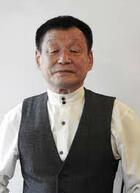
Like tens of thousands of ethnic Koreans in Japan and their relatives, Ishikawa's entire family immigrated to North Korea in 1960, when Ishikawa was thirteen, in a resettlement program organized by the two countries' Red Cross societies for Koreans who came or were brought to Japan before and during the war. It is estimated that, between 1959 and 1984, a total of 93,340 Korean residents of Japan, their spouses and Japanese descendants moved to North Korea. The Japanese Red Cross Society estimates that some eighteen hundred Japanese wives, like Ishikawa's mother, went there with their Korean husbands. But life in what was touted as a "paradise on earth" was nothing like any paradise. Ishikawa's mother, a victim of poverty and discrimination, died in 1973, followed by his father in 1984. His younger sister and two children starved to death in 1997, shortly after Ishikawa's flight from North Korea. He organized a rescue operation for his other sister, which finally took place in 2004, after crossing the Yalu with the help of border mafias and reaching northern China on the night of October 18. Since Miyazaki's escape in October 1996, about fifty more people have clandestinely left North Korea and are now living in Japan.




